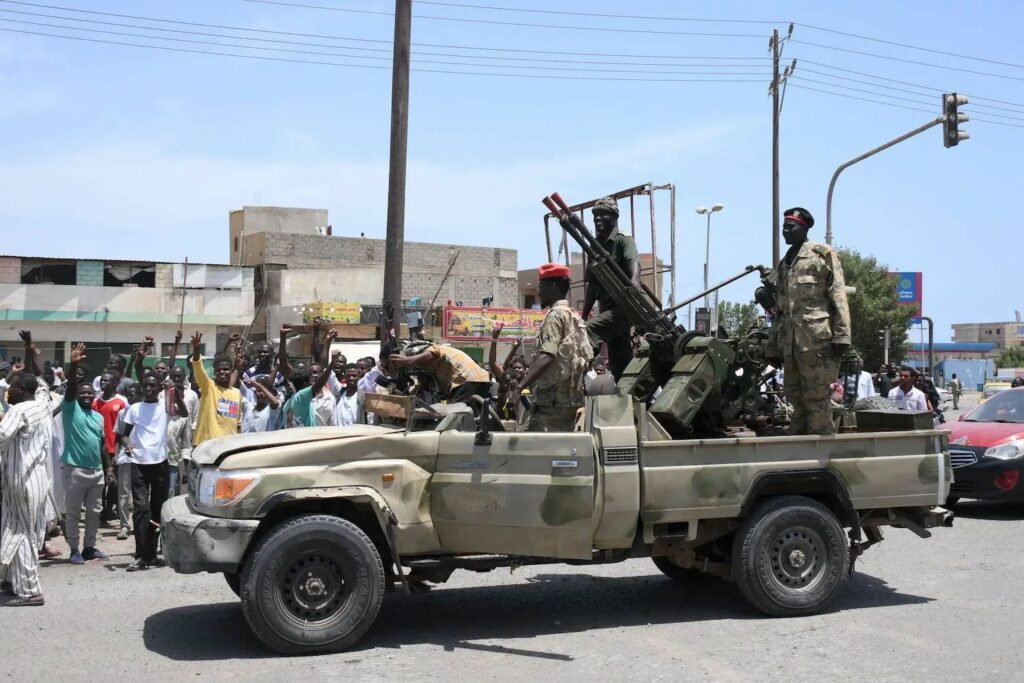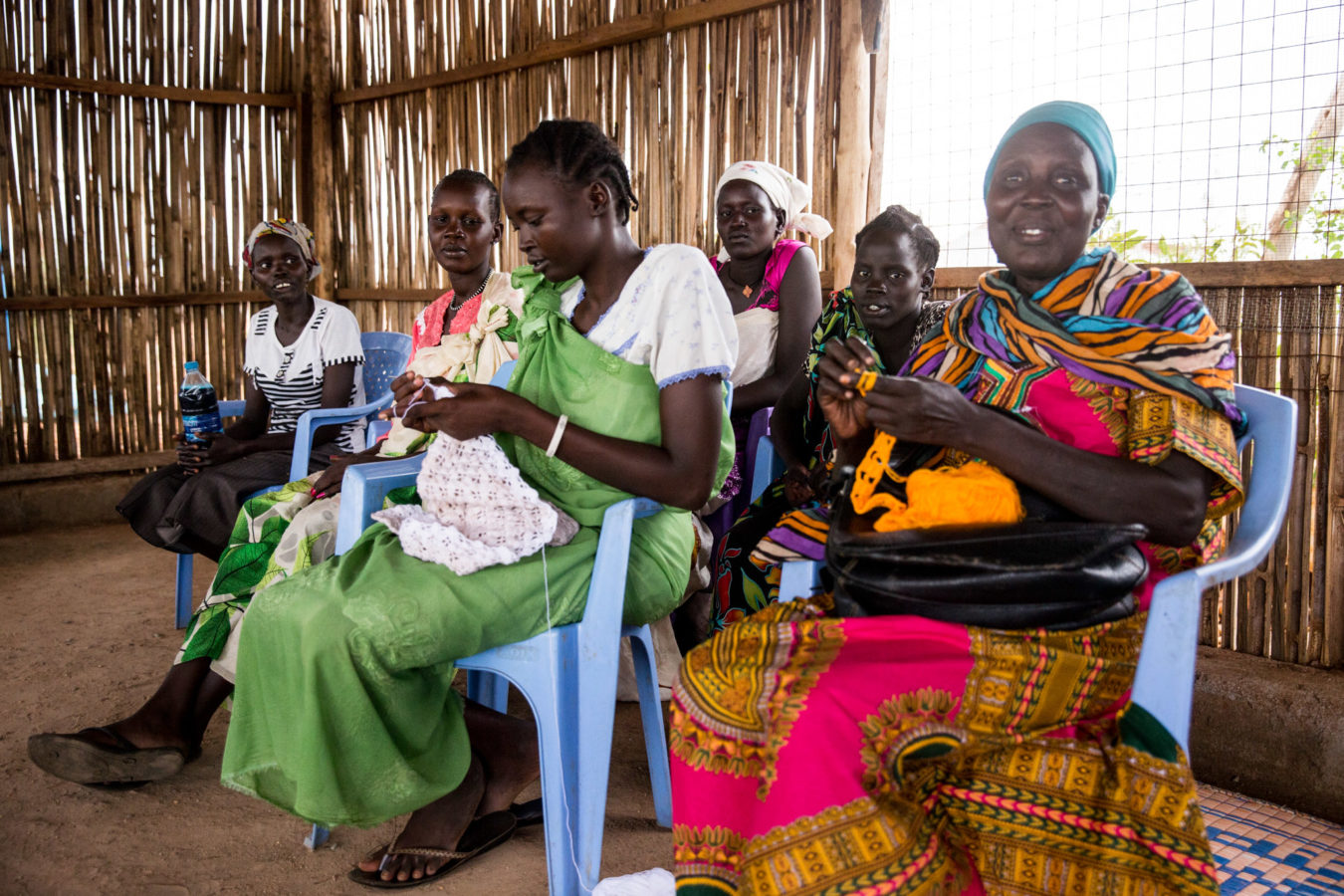
- The civil war in Sudan will impact the global economy and the flow of trade between the nations as it is in the Horn of Africa which is an important trade centre and adjacent to the Suez Canal.
- Sudan is the top exporter of gold and groundnut to the UAE, China, Saudi Arabia, India, and Italy and the civil war may disrupt the export of these commodities.
- This conflict will lead to fighting on many fronts and will make it harder for common people to access basic necessities like food, clean water, healthcare and services to the Sudanese public.
- The conflict has prevented thousands of Sudanese women and girls from accessing basic health facilities and medical care and are also at a greater risk of abuse and assault because many others have been forced to share their homes and belongings with RSF members.
According to the New York-based Human Rights Watch and United Nations reports on the rise in Sexual Violence in parts of Sudan where there are active conflicts impacting women. How this conflict affects or cripples the trade flow and economy and the global fallout is a curious case of study. Sudan is a country that is geographically located in northeast Africa and shares its boundaries with Egypt, Ethiopia, Libya, South Sudan and the Red Sea. It is the third largest country by area, with its capital city being Khartoum. This country is dominated by Muslims, in which the majority identify themselves as “Arabs” and speak the Arabic language.
Background of the Sudan Conflict
The long-running, ongoing conflict had its roots in April 2019, when Omar Al Bashir, who came into power in a 1989 coup as autocratic or dictator president of Sudan, was disposed of due to brutal repression, genocide in Sudan Darfur region, rising prices and failing economy and countrywide uprising. He was overthrown by joint action carried out by the SAF (Armed forces) under the Command of General Abdel Fattah al Burhan and RSF (Paramilitary forces), a Militia under the Command of Mohammad Hamdan “Hemedti” Dagalo.
Ongoing Tussle between RSF AND SAF
On 15 April 2023, a conflict broke out between the two main security forces Sudanese Armed Force (SAF) and Rapid Support Force (RSF) stand against each other after prolonged weeks of disagreement and tension over the security reforms, specifically on the issue of the RSF merging into the government armed forces. Before the players in the battle of power, the RSF leader, General Mohammad Hamdan Dagalo and Army General Abdel Fattah al Burhan were allies. Still, the thirst for Political and economic power between the two generals led to the break of conflict in Sudan. Sudan primarily consists of oil and gas resources. In these important gold mines, the RSF leader and his troops have control, and they earn profit from it. Hence, the further merger of RSF with the military hampered the autonomy of profit from gold mines, leading to a decline in economic power, which also affected the power in terms of political goals.
Conflict: Women Beyond Being Victims
According to the reports published by the UN Human Rights Office in Sudan, since the conflict began, there have been 21 incidents of conflict-related sexual violence against at least 57 women and girls, with which victims include at least ten girls. In one case, as many as 20 women were reportedly raped in the same attack. Similarly, according to the Unit for Combating Violence, women under the Sudan Ministry of Social Development also documented or reported 42 alleged cases of sexual violence in the capital Khartoum and 46 in the Darfur region. However, there are several cases, that were underreported, and the actual number of cases is far higher due to many reasons like shame, fear, and stigma leading to underreported cases.

However, since the conflict started, at least 20 hospitals, including several maternity hospitals, have been destroyed by attacks and bombings throughout Sudan, and more than 60 per cent of health centres in Khartoum have been forcefully closed. This lead to prevented thousands of Sudanese women from accessing basic maternal health facilities and medical care, which includes 2,19,000 pregnant women and 24,000 of those who will give birth within the next three months. UNFPA is also concerned about the 3.1 million women and girls facing increased risks of life-threatening gender-based violence as protection services are interrupted by the clashes. Additionally, several reports of rape and sexual assault committed by the RSF soldiers and army officials have become known throughout the Sudan. Considering military personnel have expelled many families from their homes, they are neither safe nor secure on the streets nor in their homes. Women and girls are at a greater risk of abuse and assault because many have been forced to share their homes and belongings with RSF members.
Due to this ongoing civil war in Sudan, thousands, including men, women, and children, have fled their homes within Sudan and to countries close by which it shares boundaries like Egypt, Ethiopia, Chad and Central African Republic. This conflict has worsened the situation, especially for women, as it will expose them to trafficking, exploitation, violence, sexual assault, etc. Nevertheless, regardless of the challenges in conflict they faced, Sudanese women have stayed determined to speak out in support of the attempt to advocate peace. In Sudan, female activists and human rights emphasise using social networking sites to warn the general public about the suspected solider and the rape they committed. Social media is used as an essential network or source of assistance for those who have been victimised by sexual assault and those who are at greater risk of it, like girls or teenagers.
Implications for the rest of the World
The Sudan conflict, which shares its boundaries with seven countries, has economic and political effects in these countries, which include Egypt, Ethiopia, Chad, South Sudan, Libya, Central African Republic. This conflict also affects countries like the US, Russia, UAE, and Saudi Arabia, which have close economic ties. This conflict will hamper the US interest in the region due to instability in the Horn of Africa and Sahel region, as it will affect the trade between the countries. The Horn of Africa is one of the vital trading routes, and further, it will affect the trade flow between Africa and Gulf nations like UAE and Saudi Arabia.
Sudan is the top exporter of gold and groundnut to the UAE, China, Saudi Arabia, India, and Italy may disrupt the export of these commodities. Additionally, Sudan is a top exporter of Arabic Gum, which is a key ingredient for food industries. The harvest of this ingredient will be affected by the conflict. Sudan is located on the Red Sea, and instability due to this conflict can disturb the smooth flow of trade by the Suez Canal and hamper the ability to trade with the rest of the world. Further, Sudan also lies on both sides of the Nile River, as it is also a major tributary that merges near Khartoum before flowing downstream to Egypt. Hence economy and society will be impacted due to instability in Khartoum. It will also hamper the management of the Grand Ethiopia Renaissance Dam, which affects the entire Nile basin region that includes Egypt, Ethiopia and Sudan. Finally, this ongoing instability in Sudan might exacerbate the humanitarian situation across its neighbours and impact the economy and smooth trade flow, further impacting the rest of the world.
Conclusion
The power struggle in Sudan or civil war has a major impact not only in Sudan but also in the rest of the world. This conflict will lead to fighting on many fronts and it becomes tougher and harder to access the basic necessities like food, clean water, healthcare and services to the Sudanese public. Further, due to this conflict women and girls are badly affected as they face gender-based violence including sexual assault and abuse which will deteriorate the condition of women in Sudan. This conflict led to an impact on the global economy and the flow of trade between the nations and countries as it is geographically located in an important trading route that is the Horn of Africa which is an important trade centre and the Suez Canal. The conflict is going to hamper the economic growth of the region and can drag many people into poverty and also impact the UN programme of poverty alleviation in African countries.
(Anushka is pursuing an MA in Political Science at the Department of Politics and International Studies at Pondicherry University, Puducherry, India. Views and Opinions expressed are the authors’ own)
